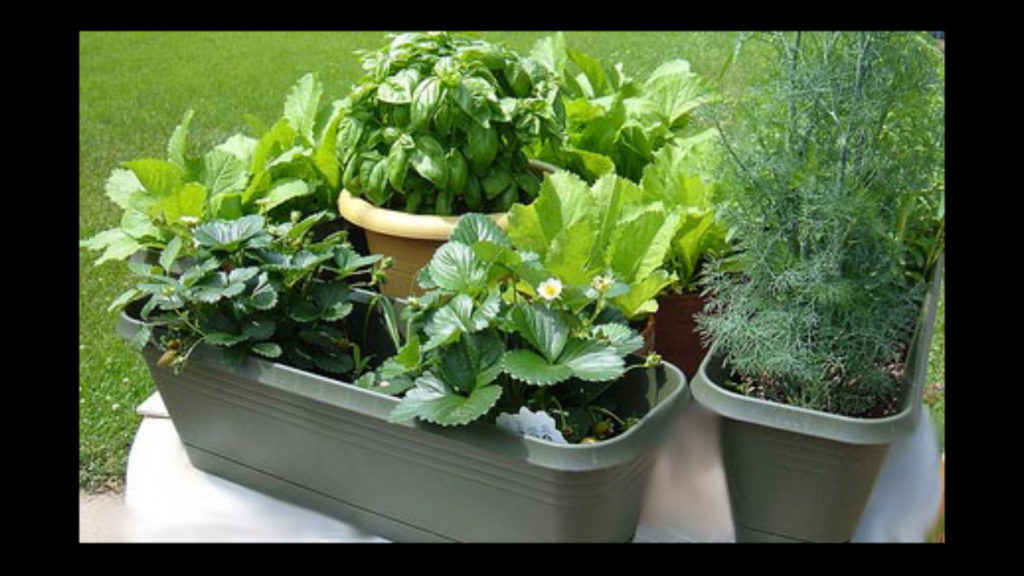By: Dottie Kreps, Delaware County Master Gardener Association—
Nothing beats the taste of homegrown fruits and vegetables! But what if you don’t have the space or suitable soil to have a garden in your backyard or you only have a patio or balcony. Container gardening might be your answer. Here are some container gardening basics to help get you off to a good start this spring.
There are several things you need to consider when planning your container garden: the plants, the type and size of container, sun, water, soil and fertilizer.
The Plants
You can grow herbs, fruits, and vegetables in containers. Start in spring with seed, seedlings or transplants. Starting seeds is not for everyone, so if you may want to visit your local garden store and pick some healthy transplants to get started. Vegetables that are ideally suited for growing in containers include: tomatoes, peppers, eggplant, green onions, beans, lettuce, squash, radishes and herbs or fruits such as strawberries or raspberries. But don’t be afraid to try planting things you like to eat. You can also plant a themed container garden like a pizza garden (plant a combination of tomato, basil, oregano, peppers, and onions).
The Container
Three things to think about when choosing a container are material, size, and drainage. Containers can be made from clay, wood, plastic, cement, or metal. You can buy a container or upcycle household items like a 5 gallon bucket, a basket, or a tub.
The size of the container will vary according to the plant selection and space available. You need to have a container that is big enough to accommodate root size of the plants. Keep in mind that it is easier to grow plants in large containers than small ones. Choosing a pot that is the right size for your plants will help ensure container gardening success, so check the information about root depth of your plants.
The container also needs to have good drainage to keep from drowning the plants. Pick containers that have drainage holes (about ¼ inch diameter) in the bottom. If you have a container without holes you can always drill them.

Plastic containers are an excellent choice for container gardening. If you have a container without holes you can always drill them.
Sun
When planning a container garden make sure you have a location that gets direct sunlight. Most vegetables require at least 6 hours of full sun.
Water
It’s easy to overwater a container garden so it’s better to water less but more frequently. You don’t want to drown your plants. An easy way to test the moisture in your soil is to stick your finger about an inch into the soil. If it feels dry then add some water. Inconsistent watering can cause the most problems. Self-watering containers are another great option to help maintain a consistent moisture level.
Soil
Don’t use soil from your yard or bagged topsoil. It will become compact, have drainage issues, and import weeds. Always use a good quality light, potting soil or a soilless mixture. You can buy ready made mixtures at most garden supply stores. You can also make your own growing media. Growing media recipes are available on the Purdue Extension website (Publication H-200-W)
Fertilizer
Fertilization is an important step in container gardening. Plants need food and growing media has little to no nutrients, so you will need to add fertilizer to your containers. You can use a slow release fertilizer mixed in your soil mixture or a water-soluble fertilizer you use every 2-3 weeks. You can use a commercial fertilizer, organic or natural, or make a compost tea. Always follow the instructions on the commercial fertilizers and check to make sure they can be used on fruits and vegetables.
Inspect your plants daily and, when necessary, water, trim, or prune. Also check your plants daily for pests, weeds, and diseases.
Good luck with your container garden!
Click here to join the Delaware County IN Master Gardeners Association
(Sources: Purdue Extension, University of Illinois Extension, and North Carolina Extension)


